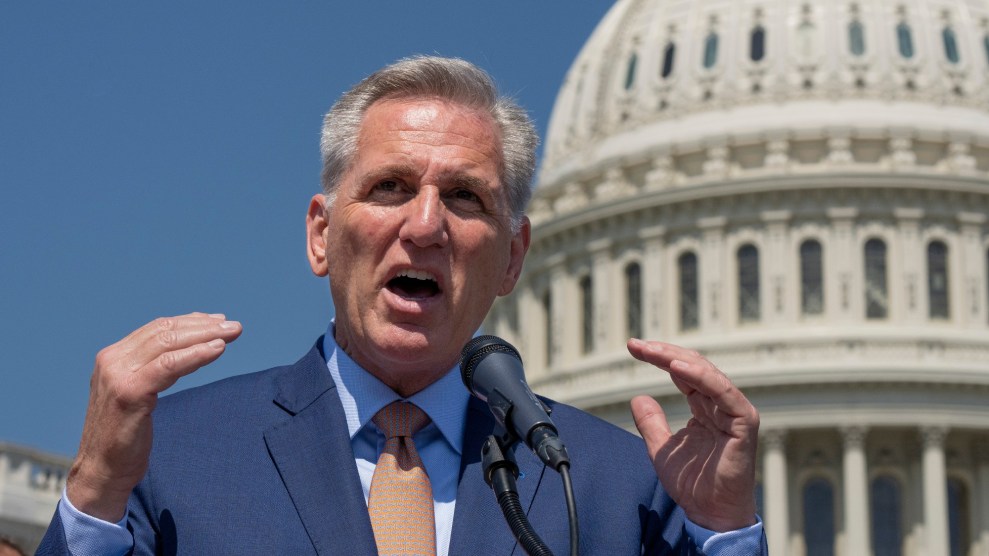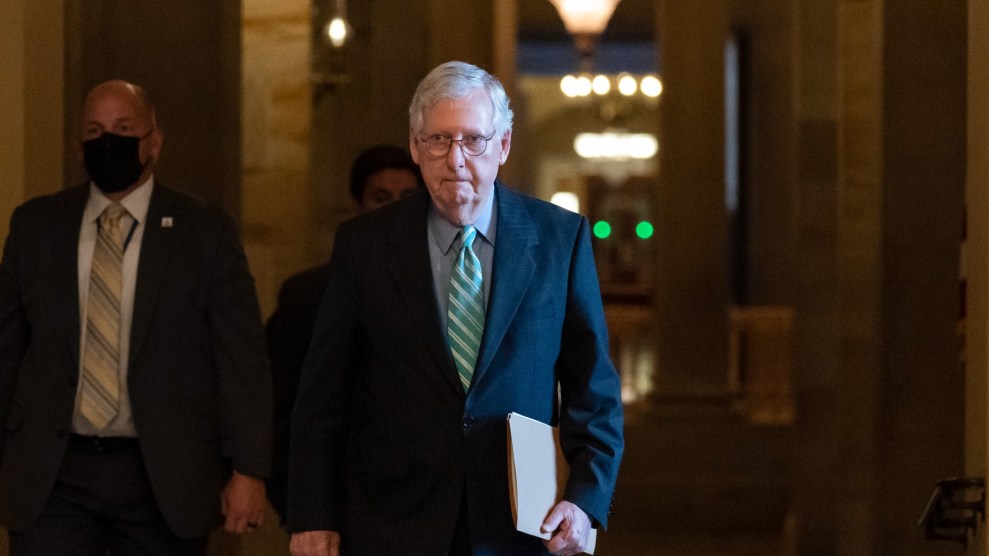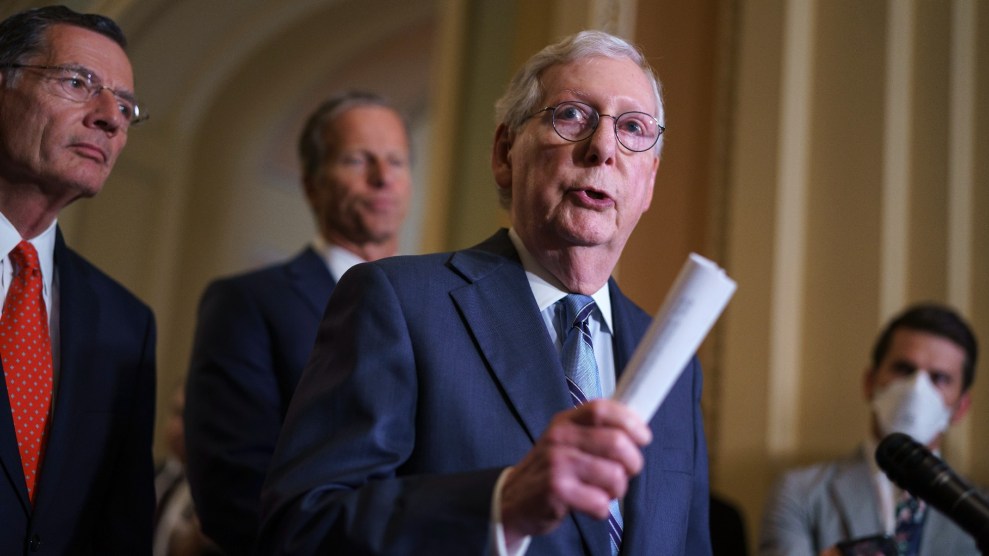
House Speaker Kevin McCarthyJ. Scott Applewhite/AP
The fight over the nation’s debt limit has been brewing in Congress for months and is now ramping up. On Sunday, several Democratic lawmakers called on Republicans to stop using the cap as a bargaining chip for the GOP’s broader efforts to cut social safety net spending, a negotiating strategy that could threaten the US economy and Americans’ finances.
Last week, House Speaker Kevin McCarthy (R-Calif.) introduced a bill that would raise the debt limit in exchange for drastic cuts to federal expenditures—forcing government agencies to stick to 2022 spending levels, despite record inflation. McCarthy’s bill would also tighten spending by blocking Biden’s plan to cancel up to $20,000 of student loans for low- and middle-income borrowers, repealing clean energy tax credits, and rescinding $80 billion in funding for the IRS to uncover tax fraud. And it would add work requirements to Medicaid and food stamps, likely making it harder for people to receive this aid regardless of their eligibility.
In contrast, Republicans agreed to raise the debt limit three times during the Trump administration, with little debate.
On Sunday morning, Sens. Dick Durbin (D-Ill.) and Amy Klobuchar (D-Minn.) both urged Republicans to wait and pursue spending cuts during the annual budget process later this year, rather than holding up a debt ceiling increase and risking major harm to the US economy.
“Let’s do the responsible thing and not default; move forward on the debt ceiling,” Sen. Durbin said on NBC’s Meet the Press. “[W]e can have a fulsome debate on the budget—and we will, and I understand it on the spending levels—but not at the expense of jeopardizing jobs and economic growth in America.”
“If you go forward as McCarthy wants, what will happen?” Sen. Klobuchar said on CNN. “You will literally see interest rates go up for mortgages, for loans. You’re going to see the stock market plummet again; that we can’t afford.”
“Negotiate on the budget,” she added. “That is the place to negotiate. And they should start those negotiations now. Not using the American people and their mortgages as [a] hostage.”
The “debt ceiling” refers to the maximum amount of money the US government can borrow to pay its bills, from sending Social Security checks to the elderly to issuing food aid. In January, the US hit this cap, which forced the Treasury Department to implement “extraordinary measures” so the government could keep meeting its obligations. Those measures are likely to run out in early June, barring action from Congress to increase the debt cap. If that happens, the consequences could be dire. As I explained in 2021, when the GOP also tried to obstruct raising the debt cap:
If Congress doesn’t raise the debt ceiling, the US will default—econ-speak that means the US government won’t be able to keep paying back its debts, particularly Treasury bonds. These are the bedrock of the global financial system, considered to be the safest of assets for the express reason that the US has never, in the history of time, defaulted on its debts.
A report by Moody’s Analytics predicts that if the United States defaults on its debt, the economy will lose more than 7 million jobs while stocks crater, killing $10 trillion in household wealth and causing the unemployment rate to skyrocket over 8 percent. “The economic downturn that would ensue would be comparable to that suffered during the global financial crisis,” notes the report, referring to the 2008 meltdown of the global economy.


















